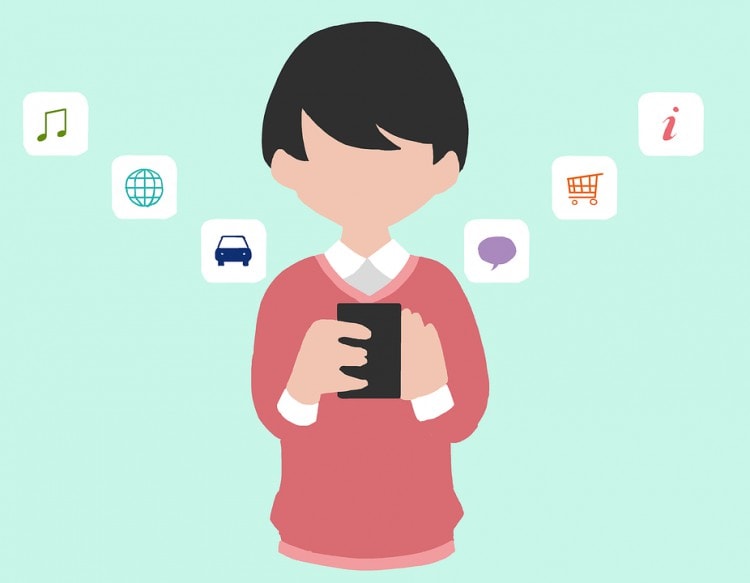
When you download an app, how much thought do you put into the information you are sharing? Is it something that even crosses your mind? For many of us, downloading an app and entering our personal data isn’t out of the ordinary, so sharing such private information has become somewhat normalised.
Indeed, apps need to take into account your basic information to provide you with a useful service. However, just how much information do they keep for themselves, and how much do they share with third parties? We look into the world of data protection as we ask the question – are health apps sharing your secrets?
Who Uses Health Apps?
The kind of user base that a typical health app may see could be incredibly varied. Therefore, they have access to a plethora of information concerning a range of users. Because there’s no one demographic, aside from perhaps smartphone owners who are looking to improve their fitness, a wide source of data is available.
A study by the University of Toronto showed that the 24 top-rated Android health apps are used primarily by those in the US, UK, Canada and Australia. A staggering 19 out of 24 of those apps tested were found to share data outside of the app to third-parties. Many users feel obliged to tick the little box that says their data can be shared, especially when to withhold permission may stop them from being able to use the app. The most common third-parties are the likes of Facebook, Google and Amazon. However, the ones in this study were also found to be sharing information with the National Library of Medicine, which is part of the Department of Health.
What Information Are You Sharing?
Of course, private information such as bank details could never be shared beyond an app. Though other information such as your personal fitness habits and conditions could indeed be data that are sold on to third-parties. In another study conducted by researchers at the University of South Wales, 36 of the top-ranking free apps for smoking cessation and depression were analysed. It was revealed that of those apps, 33 shared user data such as username, and 8 shared an identifier linked to the user’s device. A further 2 apps shared information including substance use or personal health information, and a whopping 26 apps shared advertising identifiers that could track user behaviour over time.
Gaining Valuable User Data
Many third-parties such as Facebook claim that collecting such information simply allows them to improve experiences for users on the platform. This includes aspects such as the News Feed and Search content ranking capabilities. However, they are adamant that they’re not collecting sensitive health and financial information to use more broadly.
Much of the data collected is simply used to advertise products or services back to you. But there’s a small proportion that may be funnelled into medical research – something that you may not have consented to. Such as the information being given to the National Library of Medicine.
Furthermore, an assistant professor at the University of Toronto nursing program acknowledged that data is essentially the currency for mobile health. He stated that information of this nature is especially valuable to drug companies, insurance companies, and anyone else who wants to market products that have anything to do with healthcare. This means that many people are being targeted with ads very specific to their conditions, which could feel incredibly invasive depending on the nature of the adverts.
How You Can Protect Yourself
If you type a query into Google, it feels now as though it’s almost inevitable that you’ll see an ad of some sort trying to advertise to you a product in response to your question. Whether you’re searching for fish oil capsules or a personal trainer, sooner or later you’ll see an ad pop up. Many smartphone users don’t realise that the same technique is applied to many apps.
Unfortunately, it can be tricky protecting yourself from such data sharing without having to forfeit the using of health apps completely. As previously mentioned, if you revoke the right for apps to share such information with third parties, you may be denied access to the app altogether.
Get Used To It Or Miss Out?
So, is it a case of surrender your information or miss out on utilising the services of health apps? Well, some governing bodies don’t seem to think so. The UK government, in particular, issued a lengthy report regarding Facebook’s use of personal data. The report claimed that for someone who sits on top of one of the world’s most influential companies, Mark Zuckerberg appears to be turning a blind eye to such crucial issues. It was concluded that unless serious action was taken, Facebook was no longer fit enough to govern itself and a special regulatory body would need to step in.
Though this is great news for the UK, the same can’t be said for the rest of the world. It’s hoped that with such strong guidelines being placed over one of the biggest companies on earth, other governments will follow suit in the fight against data protection – far beyond GDPR.
